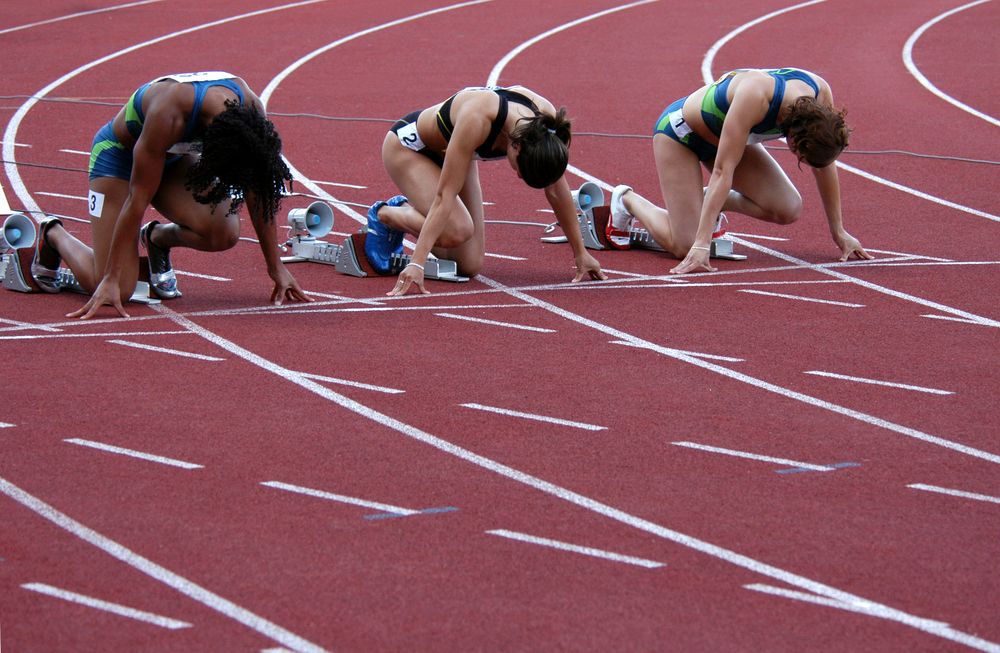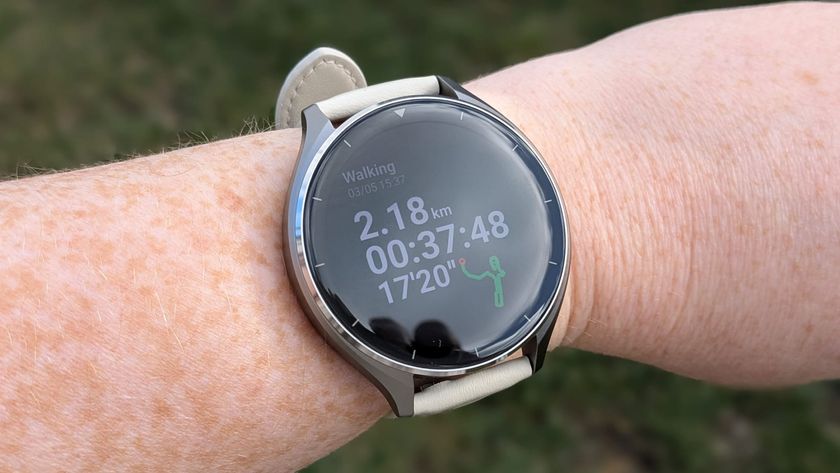Olympic Exercise Plan: How to Work Out Like a Champion

There's nothing like the Olympics to inspire you to get in shape. This summer, as Team USA fights for the gold in every athletic arena in London, follow suit and add some variety to your summer workout.
Following along with the Olympic events in the coming days, here are some workout suggestions that will have you feeling like an Olympian in no time, said Mike Soster, a trainer and certified performance enhancement specialist in Cleveland.
July 28: Swimming events get under way
As Michael Phelps swims for his 17th Olympic medal, jump in the pool as if you're fighting for a medal of your own. Always begin with an easy warm-up of two laps at low-intensity. But then increase the tempo, and do four lengths each of freestyle, backstroke and breaststroke to work all of your major muscle groups. Repeat this cycle for 30 minutes for a low-impact cardio workout. Swimming is on all week, so if you like this workout, try it more than once. (Calories burned: 212)
July 29: Cycling, Women's Road Race
After watching the women dash across the finish line Sunday morning, hop on your bike and try a road race of your own. "Find a path or trail that has some elevation changes. This is going to force you to come up and down from your seat, as opposed to just a leisure flat-level cruise," Soster said. You can use your car to plot out a 10-mile ride ahead of time. (Calories burned: 292)
Aug. 2: Women's Gymnastics, Individual All-Around
Sign up for the Live Science daily newsletter now
Get the world’s most fascinating discoveries delivered straight to your inbox.
We can't all be gymnastic superstars like Gabrielle Douglas and Jordyn Wieber, but we can learn a thing or two from these athletes — mainly, the importance of flexibility, Soster said.
Not only does stretching reduce your risk of injury, but it can also improve your workout by increasing the range of motion in your joints. So instead of lounging while you watch the Women's All-Around today, add some stretching to your couch time.
The area people are most tight is in the hips, Soster said.
"A tight hip flexor muscle can create issues from low back pain and hernias, to immobility and proximal joint disorders," he said. (The hip flexor muscle is found directly under your front pants pocket.)
The best way to stretch this muscle, Soster said, is to get yourself in a lunge position, with your left leg forward, and your right knee pointing down to the ground. Push your hips forward while keeping your upper body straight, and reach up to the ceiling. Hold the stretch for 30 seconds on each side. Don't forget to stretch your other major muscle groups as well.
Aug. 8: Track & Field, Women's 200-Meter Sprint
As Allyson Felix sprints for the gold in the women's 200-meter dash today, mix up a regular jog with a sprinting workout. All you need is two cones or other markers, about 30 yards apart.
But first, start with a five-minute jog to warm up. "A proper warm-up to increase core temperature, and prepare the leg muscles for activity is more important in this scenario [sprinting] than any other, due to the high force production by the legs," Soster said.
When you're ready to start sprinting, work in a 3:1, rest-to-run ratio. That means if it takes you 10 seconds to get from one cone to the other, you get 30 seconds of rest before it's time to sprint again. Do 15 sprints for a workout that will earn you a spot in the medals' ceremony. (Calories burned: 215)
Aug. 10: Track & Field, Women's 5K
"Not all of us are trained to run a full 3.2 miles, but that doesn't mean we can't complete it," Soster said.
Instead of taking the full 5-kilometer run at once, break the distance into stages, alternating between five to 10 minutes of moderately-paced jogging, and two minutes of walking, until you finish the course.
"Interval training not only can help you complete your event, but it has also been found to be more beneficial for weight management than steady-state aerobic training," Soster said. (Calories burned: 303)
Aug. 11: Modern Pentathlon
You're almost there, and we've saved the best for last: The Pentathlon. The Olympic athletes will shoot a pistol, fence, swim, ride a horse, and run, but here is a modified exercise circuit, Soster suggested, that you can do in your own home. Complete the given exercises below, all the way through without stopping:
- Body-weight squats: Stand with feet shoulder-width apart, and hands out in front of you for balance, and squat down so your thighs are parallel to the ground. Keep your weight on your heels, and really push them into the ground. Do 25 reps.
- Side shuffles: Place two cones 10 to 15 yards apart, and shuffle back and forth between them, facing the same direction the whole time. Repeat five times to really hit those gluteus muscles.
- Modified push-ups: Put your hands down a steady object, such as a car hood or the back of a couch, and perform a push-up. The greater the incline of your body, the more difficult the push-up. Keep your abs pulled in tight, and do 25 reps.
- Single-Leg Floor Touches: Stand on your right leg bent at the knee (like a flamingo), and reach down to touch the floor with your left hand, using only a slight bend in the right knee, then return to standing straight. Repeat 15 times on each side.
- Jog in place: To make this jog pentathlon-worthy, get your knees up high and keep your hands above your head — this increases the demand on your core muscles, Soster said. "Empty the tank on this one, dig deep inside to find every ounce of available energy!"
Aug. 12: Closing Ceremonies
Congratulations, you made it! As you watch the athletes round the track with their medals, hold your head up high and be proud — you too should feel like an Olympian today.
This story was provided by MyHealthNewsDaily, a sister site to LiveScience.












